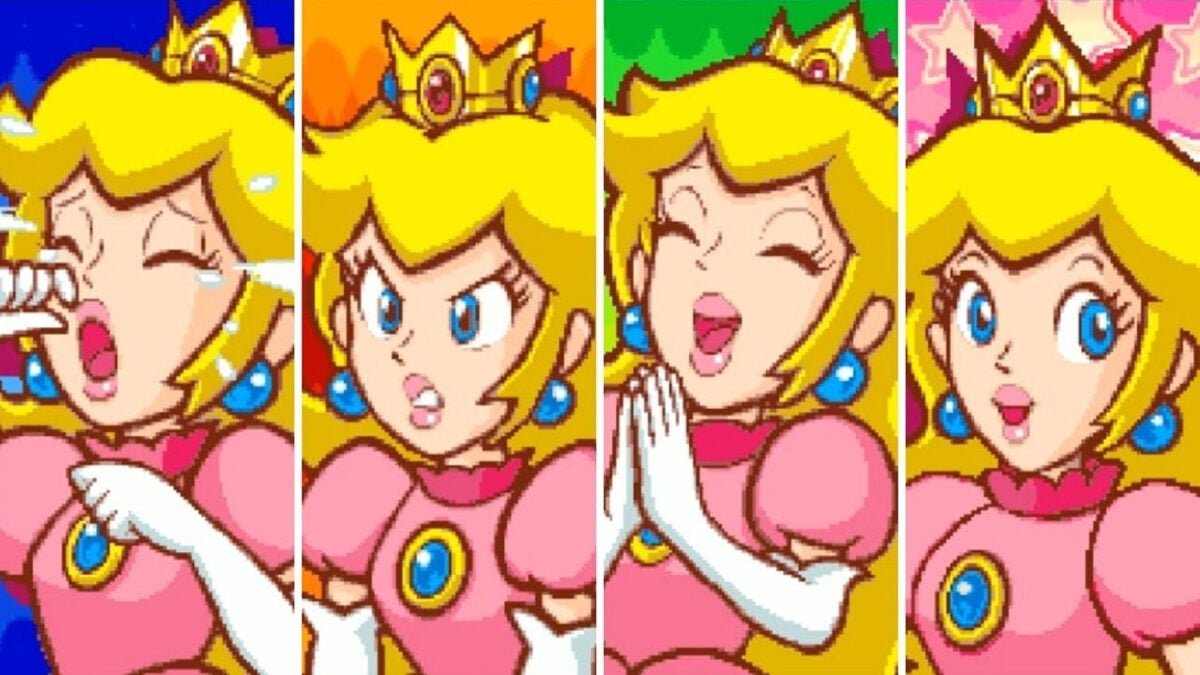I was probably as surprised as anyone to see the announcement for Princess Peach: Showtime! While Nintendo will occasionally allow Peach to accompany Mario on his adventures, their commitment to the archetypal formula of “hero rescues princess” usually relegates her to the background. And while I have no way of proving it, I can’t help but feel like her portrayal in the Super Mario Bros. Movie definitely helped solidify the idea of allowing her to star in her own game.
Naturally, when discussions of Princess Peach starring in a game—one where she takes on multiple, more traditionally combative roles—began to circulate the internet, the case of her first solo outing was going to come up. Personally, I’ve never really cared for the discourse around Super Princess Peach because it always feels inherently reductive, with the basic argument always being, “Peach’s main ability is her uncontrollable emotions, and ain’t that just like a woman?”
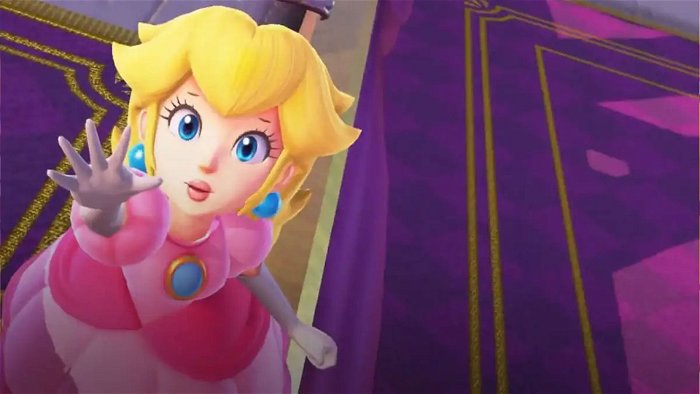
But not only have I never shared this opinion, but I’ve always felt that it’s a very surface-level interpretation of the game itself—to say nothing of the portrayal of gender in media. So, I wanted to take the opportunity to examine Super Princess Peach and try to get at the root of why everyone seems to think it’s a “bad look.”
For those who don’t know, Super Princess Peach was released for the Nintendo DS on October 20, 2005. It follows Peach to the Vibe Island after Bowser steals the mysterious Vibe Scepter, which he then uses to capture the Mario Bros in a fit of uncontrolled rage. Because of their reckless use of the Scepter, the entire island is filled with emotional energy, causing everyone to experience various moods. However, since Peach has better control than others, she can use these moods to gain new abilities. Eventually, she ends up defeating Bowser and rescuing the Bros.
“But I would argue Princess Peach isn’t using her “uncontrollable mood swings,” in fact, it’s the majority of other characters—namely the males—with uncontrollable emotions, and Peach is the only one truly in control.”
So already, from the beginning, the interpretations of Peach’s abilities in Super Princess Peach are incorrect. Most shocking to me was notable media critic Anita Sarkeesian, who in her 2013 video titled Damsel in Distress: Part 3 said of Super Princess Peach, “Peach’s powers are her out-of-control, frantic female emotions. She can throw a temper tantrum and rage her enemies to death or bawl her eyes out and wash the bad guys away with tears. Essentially, Nintendo has turned a PMS joke into their core gameplay mechanic.”
But I would argue Princess Peach isn’t using her “uncontrollable mood swings,” in fact, it’s the majority of other characters—namely the males—with uncontrollable emotions, and Peach is the only one truly in control. But it’s not so much getting the how of Super Princess Peach wrong that annoys me, but the why. Why is it that a character, specifically a female, using her emotions as abilities is seen as “cringy.”
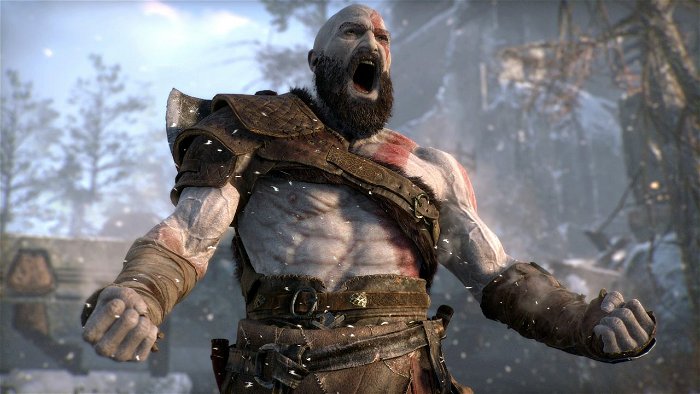
As a concept, channelling one’s emotion as a source of strength or even ability isn’t seen as cringy when it’s used in other ways. One of the most memorable scenes in Dragonball Z comes when Goku turns Super Saiyan for the first time after being overwhelmed by anger and sadness over his best friend’s death. Heck, one of the core mechanics of God of War is an ability called “Spartan RAGE,” where Kratos taps into his anger in order to gain an advantage in battle. However, the key difference to why abilities like these are more palatable is because they’re often given to men and executed in masculine ways.
To better understand this idea, I spoke with Registered Social Worker and Public Education Coordinator at an Ontario sexual violence support center, Natalie Austin who said, “Under the patriarchy, anything that is too soft, too feminine, or too emotional is considered weak, invalid, or untrustworthy.” She continued, “Emotions are something to control, be maintained — not to be expressed or only expressed under certain circumstances. Emotions, like women and other marginalized identities, are to be suppressed and subjugated.”
Unfortunately, this is still a reality of not just the games industry, but a lot of modern media—the dominant story being told is one of a male perspective, and anything else is seen as having an agenda. Recently, I reviewed Open Roads, a game whose central narrative involves two women. When I checked out the trailer for the game on YouTube, the first comment I saw read, “Why did I immediately know from the beginning that this was going to be some women power emotional drama trauma bs.”
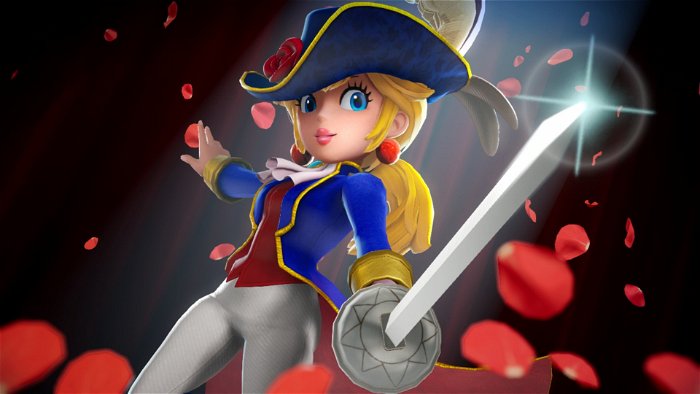
And as Austin explained, “Patriarchy is the structure and belief system that says ‘masculinity is power.’ Therefore, the idea that a feminine character like Peach could use emotions as power is impossible to people who believe masculinity is power. Softness and feminity are the antithesis of that.” This is why you often see these kinds of characterizations in games even to this day. Men are defined by their strength and stoicism, whereas feminine emotions are portrayed as detrimental or in stark contrast to their male counterparts.
Heck, even within the Super Mario universe, Mario—who long had no emotional personification—was defined as brave and heroic, whereas Luigi, who visibly displays fear and anxiety despite overcoming those, is always labelled a “coward.” Despite the core idea that bravery is action in the face of fear, Luigi will always be Mario’s cowardly little brother because his emotions don’t “follow approved societal scripts about what emotions are appropriate for masculinity.”
You can see this kind of emotional conflict present in other games as well. In The Last of Us, the character of Joel is defined by his anger, conflict, hostility and pain. He is seen as a hero and a badass despite being a deeply troubled and borderline toxic person. In the final moments of the game, he goes to extreme lengths of violence and aggression in order to “save” Ellie, which the player knows is just him continuing to run from his feelings.

By contrast, in The Last of Us Part II, the character of Abby is given a similar emotional process, having her exact violent revenge on Joel for killing her father during his “rescue” of Ellie. Despite expressing similar emotions—anger, pain, sadness, and aggression—Abby was not perceived as a badass anti-hero, and instead the villain—so much so that the game tried to leverage that as a surprise narrative shift. This display of emotion was not perceived by gamers in the same context as Joel’s, as some players would go on to harass both Neil Druckman and Laura Bailey for the actions of a fictional character.
It would seem to me that this is why some gamers look more favourably on Princess Peach: Showtime! than Super Princess Peach. All of Peach’s abilities are extensions of traditional, acceptable masculine emotionality—namely ones of aggression, bravado, confidence and even anger if you look at the way they “updated” the game’s box art. All of her abilities are emotions made manifest, but because they’re more traditionally masculine roles, they’re okay.
“This is why I’ve always found Super Princess Peach fascinating and empowering in its own way: it creates a gameplay mechanic where actively feeling and expressing emotion is the key to solving problems.”
And this is essentially the core of the problem with interpretations of Super Princess Peach. Under a patriarchal society, we’ve been taught not to express our feelings, and any display of such is uncomfortable or, dare I say, “cringy.” I can recall from my own experience, after a particularly blindsiding breakup, the number of times I was told to “man up” or “get angry instead of sad.” As a result, I spent the better part of a year being an emotional trainwreck because, to echo a sentiment from Austin, I was never really taught how to properly process my emotions nor to express them in a meaningful way.
This is why I’ve always found Super Princess Peach fascinating and empowering in its own way: it creates a gameplay mechanic where actively feeling and expressing emotion is the key to solving problems. But it’s hard to accept, not just because of societal conditions, but because it’s difficult. As Austin explained, “befriending, processing and accepting emotions so they can be used as a superpower is hard work and requires time, skill and mastery just like ones that might be seen as more masculine.”
But it’s as Austin says, “The reality is that emotions are genderless. We all feel them, and emotions have the power to destroy people who don’t know what to do with them—ask anyone who has experienced disappointment, rejection, grief, anger, anxiety, sadness or any other hard or dysregulating emotion.” It’s important to realize this truth and see the value in utilizing one’s emotions in healthy, positive ways.
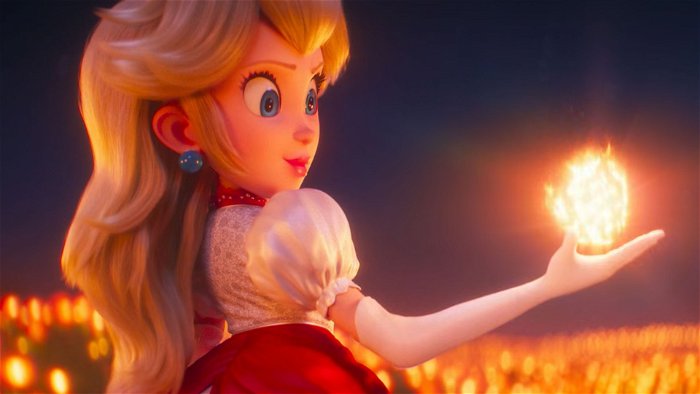
I think there’s probably no better example of this than 2018’s God of War, which was largely praised for its reimaging of Kratos—a character once purely characterized by anger and hatred, now more thoughtful, caring and driven by love and a desire to protect his son. While he still expresses anger and aggression, he’s trying to be better, and these emotions are portrayed as more negative emotions when not kept in check.
I think Austin said it best when she states, “So maybe Peach should be celebrated for utilizing an important life skill instead of torn down for ‘not being strong enough’ because it was probably hard to learn how to master all those emotions.” Regardless of whether she used a magic sceptre or maybe put in the work as a ruler, Peach’s ability to utilize her emotions shouldn’t be denigrated as “sexist” or “stereotypical” but rather aspirational.
At the very least, it seems like the majority of gamers are coming around to this. In researching for this piece, I was pleasantly surprised to see the number of people who understood the nuance outweigh the number of people who seemed to think it was cringe. I think there’s still a lot of work that needs to be done to dispel the ideologies around masculine emotionality, but I do think we’re getting there. Slow, steady work still leads to healthy growth.
